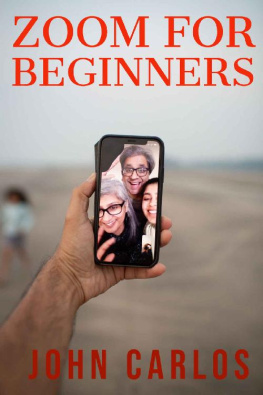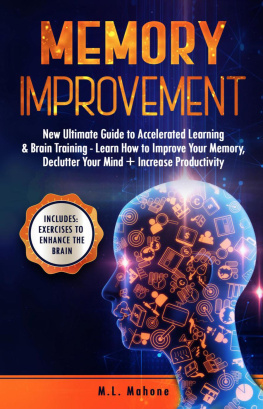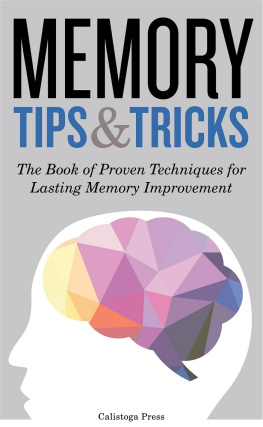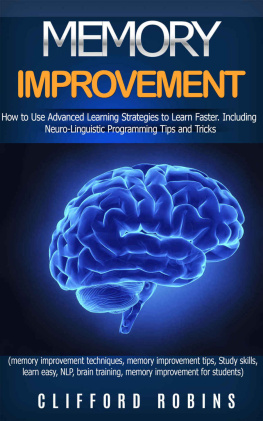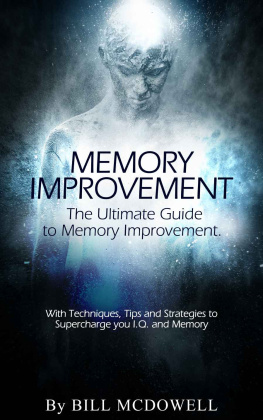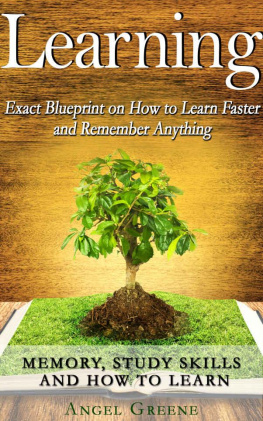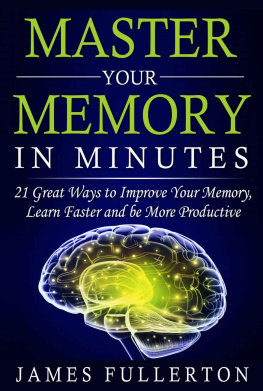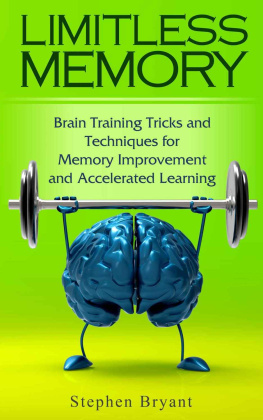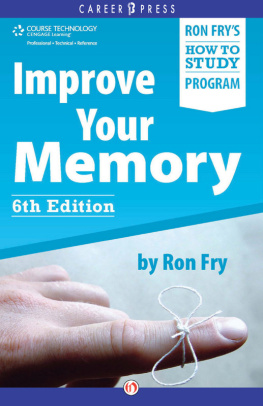The Limitless Memory
An Everyday Guide to Learn Strategies on Fast Learning, Meditation and Improvement Exercises to Improve your Memory
By
Benjamin Carlos
Copyright 2020 by (Benjamin Carlos) - All rights reserved.
This document is geared towards providing exact and reliable information in regards to the topic and issue covered. The publication is sold with the idea that the publisher is not required to render accounting, officially permitted, or otherwise, qualified services. If advice is necessary, legal or professional, a practiced individual in the profession should be ordered.
- From a Declaration of Principles which was accepted and approved equally by a Committee of the American Bar Association and a Committee of
Publishers and Associations.
In no way is it legal to reproduce, duplicate, or transmit any part of this document in either electronic means or in printed format. Recording of this publication is strictly prohibited and any storage of this document is not allowed unless with written permission from the publisher. All rights reserved.
The information provided herein is stated to be truthful and consistent, in that any liability, in terms of inattention or otherwise, by any usage or abuse of any policies, processes, or directions contained within is the solitary and utter responsibility of the recipient reader. Under no circumstances will any legal responsibility or blame be held against the publisher for any reparation, damages, or monetary loss due to the information herein, either directly or indirectly.
Respective authors own all copyrights not held by the publisher.
The information herein is offered for informational purposes solely, and is universal as so. The presentation of the information is without contract or any type of guarantee assurance.
The trademarks that are used are without any consent, and the publication of the trademark is without permission or backing by the trademark owner. All trademarks and brands within this book are for clarifying purposes only and are the owned by the owners themselves, not affiliated with this document.
Contents
Introduction
O ur memories shape who we are in many ways. The stories we tell ourselves of what we've done with our lives make up our experiences. They tell us who we are attached to, who we've been touching in our lives, and who's been affecting us. Our memories, in short, are vital to the core of who we are as human beings.
That means that loss of memory related to age may reflect a loss of self. The practical side of life is often affected, such as getting around the neighborhood or knowing how to reach a loved one. It is not surprising, then, that worries about deteriorating thought and memory capacities rank among the top fears that individuals have as they age.
Although some remain sharp as a pin, what causes certain people to lose their memory? Genes play a role, but choices do as well. Following a balanced diet, exercising regularly, not smoking, and keeping blood pressure, cholesterol, and blood sugar in check include proven ways to preserve memory. It is necessary, too, to live a mentally active life. Mental exercise helps maintain mental skills and memory in tone, just as muscles get stronger with use.
Are certain "brain work" types more efficient than others? Better than being a mental couch potato, any brain workout is better. But those that require you to work beyond what is simple and convenient are the activities with the most effective. It might not be necessary to play endless rounds of solitaire and watch the new History Channel documentary marathon. Better choices are learning a foreign language, volunteering, and other things that strain the brain.
Older individuals appear to have more trouble concentrating than young individuals. This is because changes in the brain associated with age make it more difficult to filter out stimuli that are not important to the task at hand. Practicing mindfulness; doing cognitive training; and living a balanced lifestyle that involves treating underlying illnesses, eating a Mediterranean diet, and having the necessary amounts of exercise are tips to try to improve focus.
The odd senior moment is encountered by most adults as they age. Although these memory drops can be humiliating and frustrating, conditions like Alzheimer's disease or some type of dementia are not necessarily a warning sign. Still, incorporating these lifestyle habits and techniques can help people retain and recall details for various forms of daily forgetfulness and navigate memory lapses as they occur.
Music has wonderful effects on the brain, simultaneously engaging various parts of the brain. It has been shown to be capable of changing mood and even enhancing memory. Musical memories are located in the same section of the brain as memories of activities, like riding a bike or cycle. This may explain why people with Alzheimer's problem, when other memories have faded, are still able to remember how to play an instrument.
Meditation will enable you to identify mental errors. According to a recent report, meditating for 20 minutes will help people identify mental errors and maybe prevent them in the future.
It has not been proven to protect against memory loss by participating in brain games, like crosswords, bridge, and chess, as well as artistic outlets, such as drawing, playing an instrument, or learning a language. Yet, these pursuits can assist with daily thought abilities and can improve the cognitive reserve of an individual when combined with physical exercise.
The regular exercise starts to add up to significant improvements in memory. A single round of moderate-intensity exercise can actually boost memory, but people need to work out on a routine basis and at a similar degree of intensity in order for the impact to last.
Chapter 1: How Memories are formed
H uman brains are about 3 times the size of our early ancestors, who lived four million to two million years ago, and scientists have been wondering for years how our brains got so large. Recent research indicates that there may be social competition behind the rise in brain size.
We have to commit to memory for us to remember events, information, or procedures. Encoding, preserving, maintaining, and eventually remembering information and past experiences are part of the process of creating a memory.
Memory has been characterized by cognitive psychologist Margaret W. Matlin as the "process of storing knowledge over time." Others have identified it as the ability to decide our future direction by using our past experiences.
Most people think of preparing for an exam or remembering where we placed the car keys when they are asked to describe the memory. In our daily lives, however, memory is important. Without depending upon our memories, we will not be able to act in the present or step forward.
1.1 What is Memory?
Memory is the mechanism of taking in, processing, storing, and later remembering information about the world around us, often several years later. Human memory is frequently compared to that of a filing cabinet or a computer memory device. In reality, however, memory is far from perfect-most people cannot recall every single event that happened to them, and memories are sometimes altered and can be distorted.
Memory is not just one thing- there are multiple forms of memory, such as: remembering the meaning of single words, world information, and abilities such as how to ride a cycle or how to play an instrument, and a complex form of memory that helps us to remember and even 'relieve' personal experiences or episodes from our history. Our personal history or autobiography forms this latter type of memory, which is why it is known as autobiographical memory.


